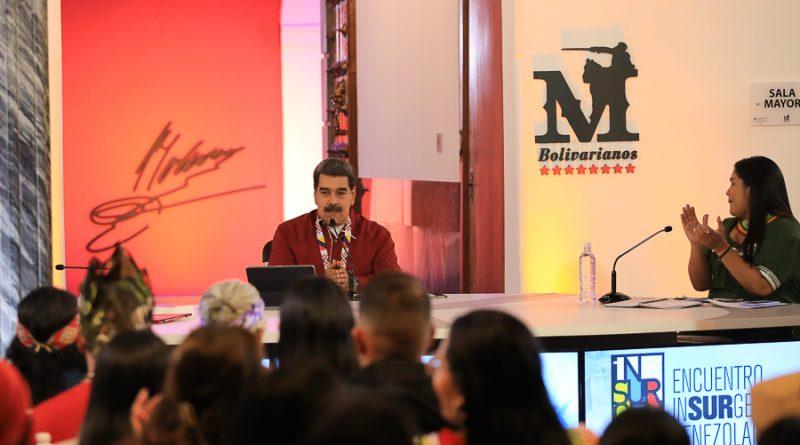The signature of the President of the Republic, Nicolás Maduro, made official the request of Venezuela to establish – prior consensus of its 33 members – the Commission for Truth and Decolonization within the Community of Latin American and Caribbean States (CELAC), whose pro tempore presidency is held by the Prime Minister of Saint Vincent and the Grenadines, Ralph Gonsalves:
“I proceed to sign an official letter for the presidency of CELAC, so that they can proceed – if this is considered and consensus is reached – to establish a Commission for the Historical Truth of Colonialism and for the Reparation of all of Latin America and the Caribbean” , he stressed in the context of the Day of Indigenous Resistance and the Decolonization of America.
The petition that advocates for the clarification of the historical facts of the 300 years of direct colonialism and 200 years of neocolonialism in Latin America and the Caribbean, responds to a proposal by the 31 indigenous and Afro-descendant peoples present in the 1st Insurgent Meeting for Venezuelan Identity, which took place from October 10 to 12.
In this sense, the head of state was positive regarding the scope of the request, given that the Prime Minister of Saint Vincent and the Grenadines, Ralph Gonsalves, “has created a very powerful Caribbean consciousness about the need for justice, that Europe apologize for the genocide committed in America and the Caribbean; and that there be exemplary reparation for all the damage, for all the looting that we were victims.”
The debate day of the 1st Insurgent Meeting for Venezuela, which was developed in three thematic axes: historical truth, justice and reparations; and political alternatives for current challenges, led to a series of approaches that, after evaluation by President Nicolás Maduro, will serve to outline efficient actions for the vindication of indigenous and Afro-descendant communities.
In this regard, in the voice of researcher Luis Felipe Pellicer, the conclusions are oriented towards the need to strengthen the historical awareness of cultural diversity with emphasis on “that the indigenous, Afro-descendant and multiethnic resistance of our peoples is not only ours, but (also) of Latin America and the Caribbean; and that in this fight it is important to consolidate research spaces to build the true insurgent history.”
Under the premise of “continuing to investigate,” Casimira Monasterios pointed out that “it is imperative that the result of the investigations and the new historical narrative land in the classrooms of the entire educational system, because if it rests sedated in academic circles then there will not happen anything».
On the other hand, Pedro Requena stressed that it is imperative that the knowledge that endures in history truly identifies the values of Venezuelanness.
The 1st Insurgent Meeting for Venezuela was conceived as a space for debate and permanent training to define a joint action program for the reconstruction of the historical truth about the European occupation during the 15th and 19th centuries, as well as to undertake reparation actions for the conquest, slavery and colonization that have repercussions on the regional and international agenda of the States and peoples of the world.
